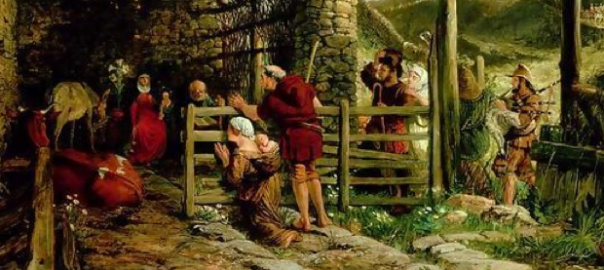
Into a small village in an obscure province of the first-century the Roman Empire, a baby is born during a census. His parents are part of the artisan class, neither “dirt poor” nor “filthy rich.” His birth sparks some local and regional interest as pious Jews in the Temple and humble shepherds declare the dawn of a Messianic Age. Babylonian and Persian scholars journey for months and honor this toddler with lavish gifts. King Herod, a despotic and paranoid appointee of Rome, reacts to a potential rival with a killing frenzy targeting under two-year-old children. Undoubtedly the census helped his soldiers carry out this inhumane task.
Jesus of Nazareth was a real historical figure and the subject of adoration and disdain, deep loyalty and religious animosity. The Gospel records offer enough tantalizing details without the exhaustive data 21st century folks crave. Jewish and Roman sources affirm his existence and importance, especially as a catalyst for a rift in Judaism. His first followers were devout Jews. Their affirmation of Jesus’ Messianic office and Lordship led to expulsion from synagogues, persecution from Roman leaders and the formation of a new faith that now includes both Jews and Gentiles as equals.
Christmas is the celebration of Jesus’ conception and birth. For his followers, it is the dawn of a new hope, the inauguration of a new age of salvation that will reach its fulfillment in Jesus’s crucifixion and bodily resurrection and its consummation with his glorious return in the future. The surprising and transformative news is that there is forgiveness of sins, empowerment for holy love and deep assurance of eternal hope available now, even as final salvation is yet to come.
The audacity of Christian hope is that all who believe enjoy favor with God and deep peace, new fellowship and a sense of divine mission right now. Our eternal security unleashes passions for purity and service. Though final redemption awaits Christ’s return, substantial “providential increases” (John Wesley) are possible today, from personal life-change to social transformations.
Let’s welcome our Lord with awe and humility, wonder and willingness to change. As we allow this real hope to permeate our lives, we join with god in the reconciling of all things.
